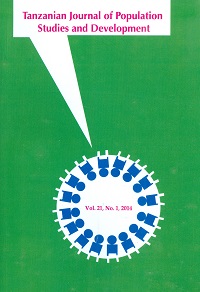Climate Variability and Feminization of Poverty in Tanzania: The Contribution of Gendered Ownership and Access to Household Assets
Abstract
This cross-sectional study assesses the contribution of gendered ownership, control and access to household assets to feminization of poverty in Iringa District, Tanzania, by using a climate variability lens. The study involved 328 respondents from five villages. Data collection methods included structured interviews, focused group discussions, in-depth interviews and documentary review. The data collected was quantitative and qualitative. The study revealed that households in Iringa District are vulnerable to the effects of recurrent droughts and intermittent floods. Furthermore, it was found out that although men and women in Iringa District are affected by climate variability, women are more vulnerable than men. Women ' s limited voice in ownership, control, access and equal share of the benefits accrued from household resources increased their vulnerability; this results to feminization of poverty. The study concludes that despite global and local efforts to achieve gender equality by empowering women and girls, in Iringa District, women remain more vulnerable to the effects of climate variability due to, among others, unequal control, ownership, access to and share of the benefits accrued from household assets. It is recommended that women should be placed at the centre of all efforts to realize equality in ownership, control and access to household assets. This will increase women ' s resilience to the effects of climate variability, thereby reducing climate-induced feminization of poverty.
Keywords: gender, climate variability, feminization, poverty, Tanzania


